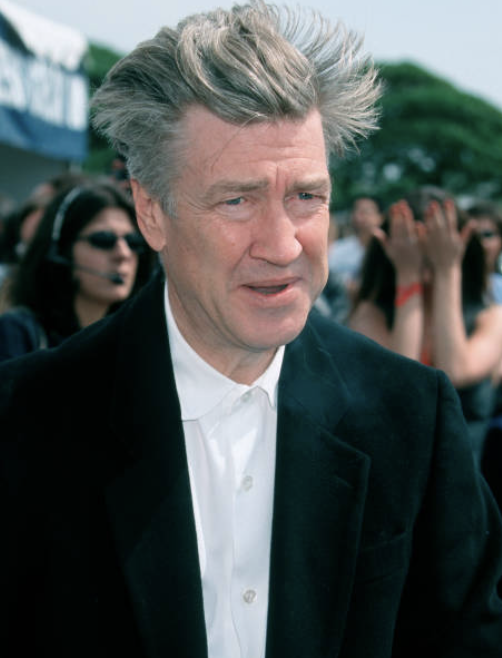An Independent Icon: David Lynch, 1946-2025
The hits keep on coming. 2025 has been a difficult year so far, and now the independent film community mourns the loss of one of its patron saints, Independent Spirit Special Distinction Award winner David Lynch. He was 78.
Born a year after the end of World War II, the man behind Twin Peaks, Blue Velvet, Eraserhead, Mulholland Drive, and others knew how to delve deep into the post-war American psyche. His films had their own internal logic that worked on a subconscious level, while still being exciting, funny, and humanistic. Then there was the cosmic dread, which was one of Lynch’s signatures. He externalized anxieties into celluloid nightmares, whether that was the fears of fatherhood in Eraserhead, the unease about small town values in Blue Velvet, or the “possibility that love is not enough,” as stated by Major Garland Briggs in Twin Peaks.
He was the definition of a cult artist, and his cult seemed to include anyone and everyone who seeks to experience the unexpected, both on a visual and subconscious level. Part of the joy of watching a Lynch film is talking about the wildness and weirdness you just witnessed with your fellow cinephiles, hopefully at a diner late at night over some ‘damn fine coffee’. In fact, Twin Peaks was one of the first TV shows to have watch parties, where people gathered each week to find out who killed Laura Palmer. Of course, the show’s appeal goes beyond the standard murder mystery. Twin Peaks wasn’t afraid to go big, posing deep questions about spirituality, psychology, and cosmic evil, all while taking delight in the small things like cherry pie or a cup of ‘damn fine’ coffee. These sensibilities reflect Lynch himself; his work explored challenging ideas with no easy answers. He often stated that he himself didn’t know what his films were about– and that was part of the fun. He believed each person found different meanings in art.

Part of Lynch’s appeal was that he walked the line of being the ultimate everyman and a complete original. There are stories of him going to the Burbank Bob’s Big Boy every day for seven years for coffee and a chocolate milkshake. He made completely mundane YouTube weather reports for years. He was a proponent of transcendental meditation and credited it with getting him in touch with his creativity.
Lynch had a successful but sometimes rocky relationship with Hollywood. After the success of Eraserhead on the arthouse circuit, he was contacted by Mel Brooks’ company to make The Elephant Man. The film was a huge success and led to eight Oscar nominations, taking Lynch from ‘arthouse’ to bonafide Hollywood director. His next film was the big budget adaptation of the sci-fi classic Dune. He clashed with the studio, and after the film failed to live up to their expectations, the studio recut the film. Lynch took his name off the project, giving it the Alan Smithee treatment, changing the name of the screenwriter to the pseudonym “Judas Booth”.
The success of Twin Peaks created similar difficulties. Just about everyone, including the powers that be at ABC, wanted to know, “Who killed Laura Palmer?” and hoped for an answer by the show’s first season finale. Lynch strongly disagreed and held the execs off for a time. He finally acquiesced and revealed the murderer halfway through the show’s second season. The show lost steam and viewers shortly after, as the creative team had to find what the show would look like now that the show’s central mystery had been solved. At the end of the second season, they found a way to bridge the new storylines with parts of older mysteries, bringing back Bob and the Black Lodge, but by then it was too late. The show was canceled after two seasons. The 2017 revival saw Lynch clashing with its new network, Showtime. He initially decided to abandon the project after a disagreement over budget and length. In the end, Showtime agreed to a deal, and Twin Peaks returned to almost universal acclaim, being the only TV show on Sight and Sound’s ‘Best Films of the 21st Century’ list.

Despite these commercial successes, Lynch shined the brightest when he was making independent projects. He shot his jealousy fever dream The Lost Highway at his own house, and his 2006 Inland Empire was one of the first major releases to be shot entirely on digital cameras. After Dune’s failure, Lynch could only get $6 million to make his neo-noir thriller Blue Velvet, but those constraints gave him freedom, and the result was one of Lynch’s defining films, exploring the darkness and violence lurking beneath the innocent facade of suburbia.
Lynch died of emphysema. In a statement he made announcing the illness last year, he said, “Yes, I have emphysema from my many years of smoking. I have to say that I enjoyed smoking very much… but there is a price to pay for this enjoyment, and the price for me is emphysema.” Honest and unafraid of life’s dark side till the very end.
As well as being a filmmaker, Lynch was a painter and musician. He was a three-time Film Independent Spirit Award Nominee and won the Special Distinction Award in 2007. He was married four times and is survived by his four children. In an announcement on Facebook, they wrote, ‘There’s a big hole in the world now that he’s no longer with us. But, as he would say, ‘Keep your eye on the donut and not the hole.’ No matter what that last part means to you, we know Lynch would approve.
For over 40 years, Film Independent has helped filmmakers get their projects made and seen. The nonprofit organization’s core mission is to champion creative independence in visual storytelling and support a community of artists who embody diversity, innovation and uniqueness of vision.
Film Independent Members watch nominees and vote for the winners of the Spirit Awards. To become a Member of Film Independent and make your vote count for next year’s 40th Annual Spirit Awards, click here. To support our mission with a donation, click here.